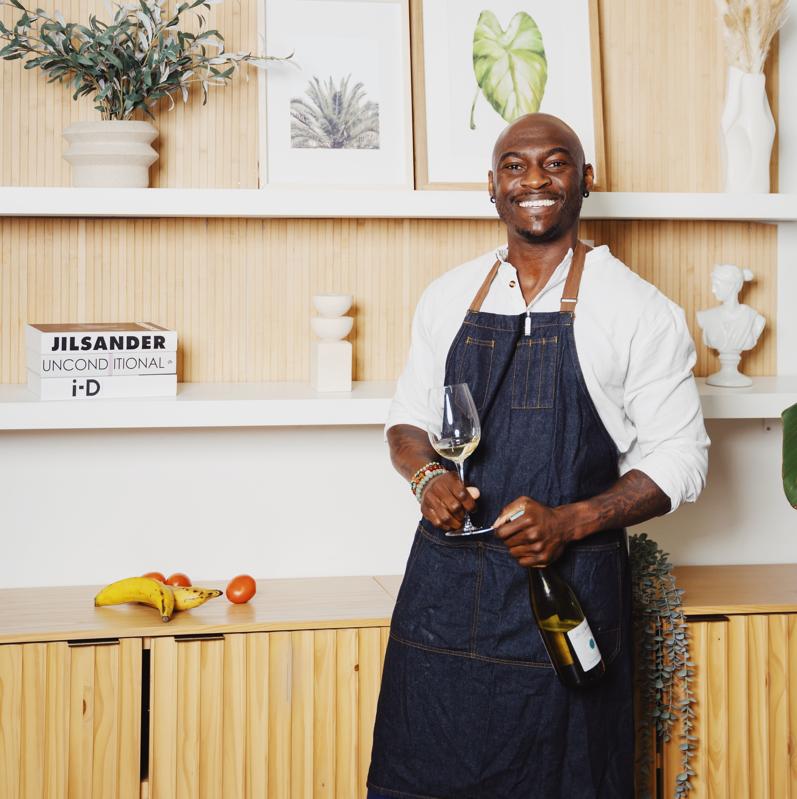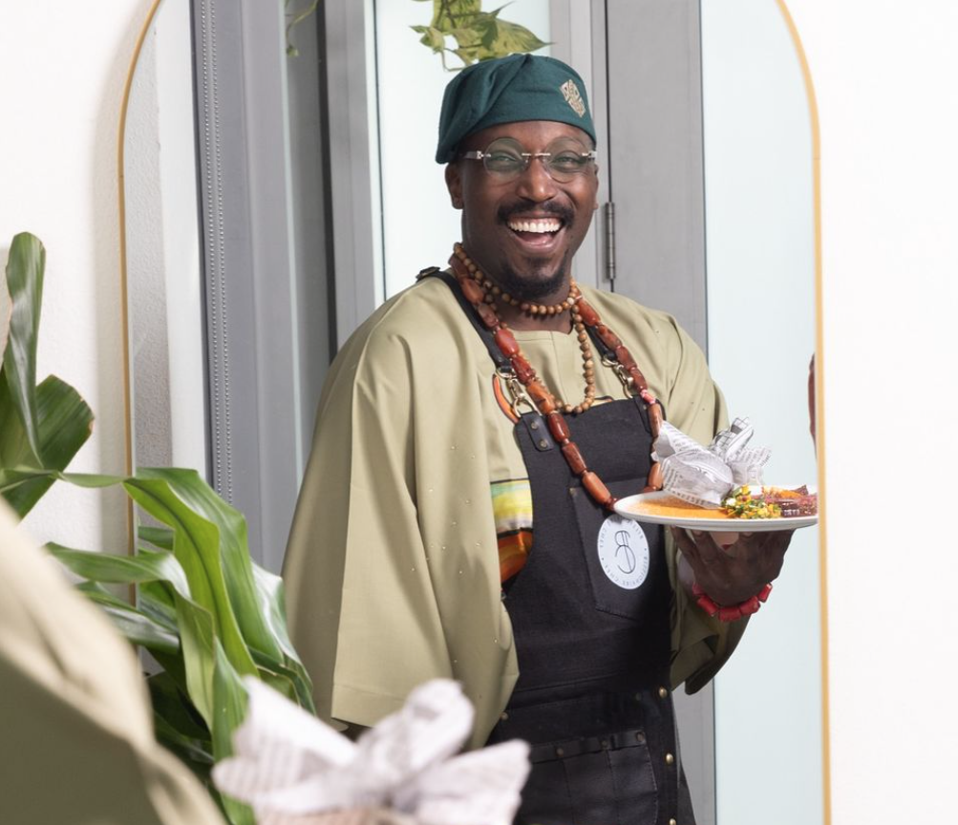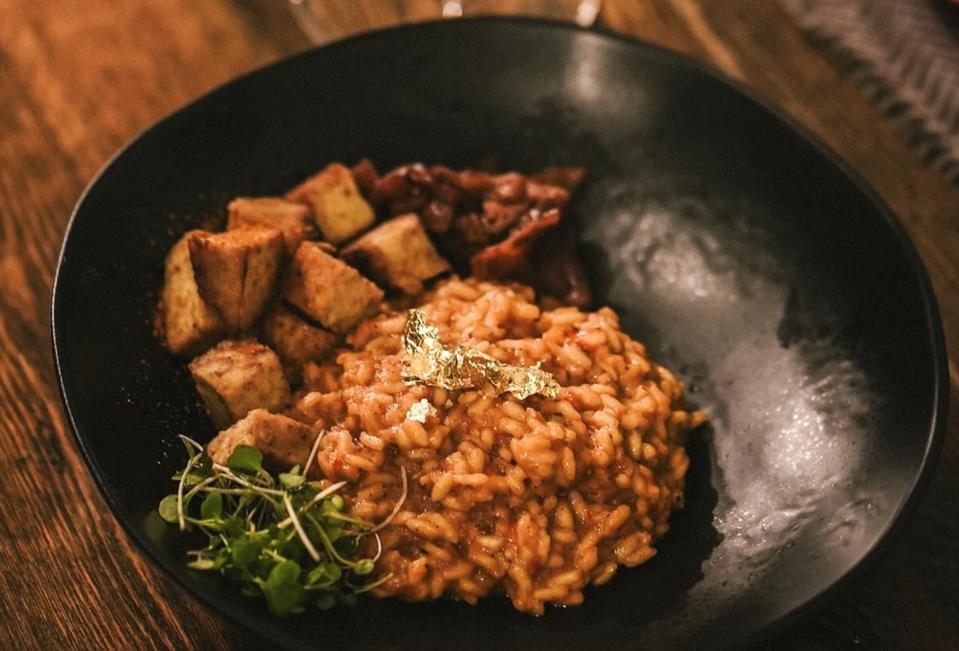Today is World Jollof Day, a day when people around the world honor the significance of the most internationally-recognized West African dish. There are endless ways to make jollof, but traditionally, it’s a rice dish that’s cooked in a base of a spiced tomato and pepper stew.
Due to the African diaspora, versions of the dish have spread throughout the world. It’s largely credited for being the initial iteration of dishes like jambalaya. With the help of a handful of chefs, the presence of West African food is increasing, albeit slowly, in cities like Los Angeles, Washington, DC and London. ‘West African’ was among OpenTable’s top trending cuisines in 2023, and two West African restaurants in London were awarded Michelin stars this year.
Depending on the country in West Africa they’re from or just how they’re feeling that day, people take pride in making their own versions of jollof. Some ingredients that chefs say are necessary to make it a jollof are scotch bonnet or habanero peppers, thyme, curry and stock. Today’s chefs are getting creative with the ways in which they are serving it. They’re determined to use jollof rice as a tool to attract new groups of people who otherwise wouldn’t know much, if anything at all, about West African cuisine.
Chefs Mando and AB of Two Hommés
Two Hommés
Chefs Marcus Yaw “Mando” Johnson and Abdoulaye “AB” Balde of Two Hommés
Two Hommés, the only standard West African restaurant in the Los Angeles area, is a true African-American experience. “It doesn’t mean black,” chef Mando says. He and chef AB blend their upbringing in South Los Angeles with their roots in Ghana and Senegal, respectively, for a one-of-a-kind Afro-Cali meal that comes out of the kitchen tasting home-cooked.
For people of African heritage who expect a traditional meal at Inglewood’s Two Hommés, the chefs use jollof as gateway to introduce them to the more modern takes on West African food showcased at the restaurant. At Two Hommés, most plates are deconstructed, with a hearty serving of a relatively simple jollof that they recognize, then as the chefs say, “adding cultural elements on top of that.” Lamb chops, fried catfish, berbere shrimp and chili garlic chicken are some proteins they offer alongside it, plus the fresh produce, like arugula, cauliflower and pickled onions, that Southern California is known for. All protein is also cooked to order. “That’s what California food is,” chef Mando says.
Conversely, for Americans who don’t know anything about West African food, the jollof acts as an approachable means to introduce them to food they may otherwise consider intimidating. “Rice is the ultimate grain,” chef Mando says. “I don’t know what country doesn’t eat rice.” That familiarity then acts as a “gateway drug,” chef Mando jokes, “to really get you in there and be like, so now what? What’s [the dish] fufu?”
Jollof rice with salmon, black beans, fried plantains, arugula and pickled onions
Two Hommés
“Jollof is based on actual history,” chef AB explains. “Slaves would put seeds, corn, rice in their hair to travel with so they when they land, they’re planting stuff that they know they can grow and live off of.” Jollof starts with “the tomato base…and you adapt. In North Carolina, they have red rice– its kind of the same thing. Spanish Rice down in Mexico, Puerto Rico. They all start with a tomato base.” Chef Mando adds, “it all started with Jollof.”
Chef Tayo
Sumaya Joan
Chef Temitayo “Tayo” Ola of Ebi-Ayo Supper Club
While making a jollof risotto may seem like an obvious fusion of West African and Italian cuisines, there’s a less obvious reason why chef Tayo serves it at his Ebi-Ayo Supper Club. Hosted at Porch Dolores in the Hollywood Hills of Los Angeles, the supper club features a fusion of the two cuisines to honor chef Tayo’s Nigerian heritage along with his love for the Italian food which comforted him when his family moved to the States in the 1990’s. “Marinara sauce reminded me so much to tomato stew from back home,” he says.
Jollof risotto with lobster
Temitayo Ola
Chef Tayo has served jollof risotto topped with lobster meat for the past year at the supper club. He finds risotto to be the perfect dish for West African fusion–not because of any ingredients per se, but because they both require patience to properly cook. “When you’re cooking the rice in a tomato stew, you’re consistently stirring it,” he says. “Risotto is the same. When you’re cooking your rice, you’re gradually adding broth into it and you’re slow cooking it and taking time for all the flavors to blend into the rice itself.”
The Ebi-Ayo Supper Club is the chef’s invitation to Nigeria. “If I said, hey, come eat some fufu, people are gonna be, like, what is that? But if I say, come try some fufu gnocchi, people know gnocchi, and it’s a great way for me to introduce them to fufu.” Chef Tayo believes that his jollof risotto is a sign of the times. “The world’s evolving. People are evolving,” he says. “How do we evolve our cuisine as well?”
Chef Tolu Eros
Chef Tolu Eros
Chef Tolu Eros AKA “The Billionaire Chef” of Ilé Private Dining Room
“Jollof rice is a force to be reckoned with,” says chef Tolu Eros, who also goes by the Billionaire Chef on social media. Through his private dining room, Ilé, he invites guests to be entertained on a journey through the beauty of his Nigerian culture. “The entire mission is to put West African cuisine and culture on the global food map and to introduce people to the culture using food as a medium of communication.” Jollof rice assists the chef in these efforts.
Jollof rice with sweet plantains
Ile is Home
Chef Eros aims to push boundaries with food. “Initially, when I started making jollof rice, I would only make the Nigerian jollof,” which is known for using goat stock and is typically spicier. “But as time went on,” he says, “I combined different jollofs together.” From stir fry, burritos, rice cakes and tacos, he now takes advantage of how versatile the rice is. “I’ve also done dishes where I dehydrate my jollof rice or even deep fry it to give a crunch and I add that into a salad,” chef Eros adds.
“Jollof Rice may have lured them in,” he says, “but then they would come into the restaurants and they would have pepper soup, asaro [yam porridge] or egusi [melon seed soup].” The chef has seen that his customers who try his cooking find that West African food is not as far-fetched as they originally thought. “We’ve debunked a lot of the misconceptions that Nigerian or West African food is too oily or too spicy,” he says. “We’ve been able to present the the food in a way that suits the modern palate without losing the authenticity of the dish itself.”






